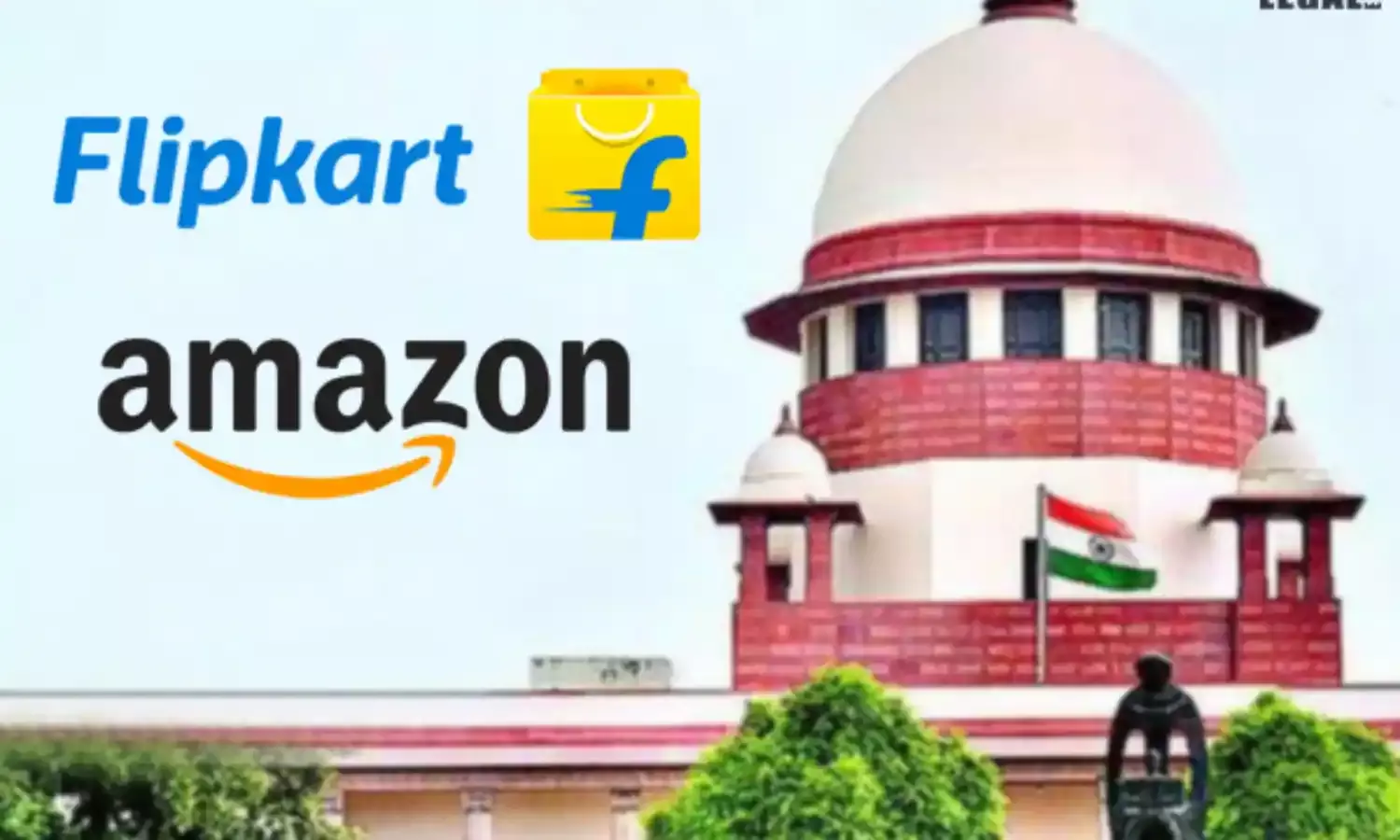C transfers pleas on anti-trust probe against Amazon, Flipkart to Karnataka HC

On Monday, the Supreme Court centralised all petitions challenging the Competition Commission of India’s (CCI) anti-trust probe against e-commerce giants Amazon and Flipkart to the Karnataka High Court while urging it to decide the matter expeditiously.
The court directed that all related cases pending before high courts be transferred and heard collectively by the single judge handling the matter at the Karnataka High Court, preferably at the principal bench in Bengaluru.
The order was issued by a bench comprising Justices Abhay S. Oka and Ujjal Bhuyan. The bench took up a transfer petition filed by the CCI. The petition sought to consolidate cases spread across multiple high courts, including Delhi, Madras, Punjab and Haryana, Telangana, and Allahabad, to prevent delays in the antitrust probe.
“It will be appropriate if all the petitions related to the same issue are transferred to the Karnataka High Court. These petitions shall be heard along with the writ petition pending before the Karnataka High Court. Let the high court take up all the matters as expeditiously as possible,” said the bench.
The court requested the Karnataka High Court chief justice to consider shifting the single judge hearing the case from the Dharwad bench to the principal bench in Bengaluru for efficiency. The next hearing in the Karnataka High Court is scheduled for January 15.
The CCI, represented by Attorney General R Venkataramani, informed the court about the proliferation of litigation across jurisdictions. He pointed out that five more petitions had been instituted in other high courts after the transfer petition was filed, and given the ongoing investigations, additional cases are likely to emerge.
Senior advocate Abhishek Manu Singhvi, representing one of the e-retailers, stressed that nearly half of the petitions were being heard by the Karnataka High Court, where petitioners’ submissions had concluded. He welcomed the direction to consolidate the cases, ensuring a unified adjudication.
The Supreme Court directed that if similar petitions are instituted in the future before any other high court, they will also go before the Karnataka High Court. “A copy of this order shall be immediately forwarded to the registrar general of the Karnataka High Court, who will immediately place it before the single judge before whom the petitions are being heard.”
The antitrust probe stems from complaints filed by the Delhi Vyapar Mahasangh, which alleged Amazon and Flipkart violated the Competition Act, 2002. The allegations included exclusive arrangements, deep discounting, and preferential listing practices that the CCI deemed prima facie anticompetitive.
After an investigation in January 2020, a report highlighted concerns leading to further proceedings. Amazon and Flipkart challenged the CCI’s actions, claiming procedural violations, including a change in their status from third parties to opposite parties without adequate notice or hearing.
During earlier hearings, the Supreme Court said that CCI could not seek “special treatment” in transferring cases related to its anti-trust probe to the top court. It pointed out that consolidating these matters before the Karnataka High Court, where proceedings had substantially progressed, would be the appropriate course of action.
Venkataramani on December 13 and 16 said that litigation in multiple high courts had effectively stalled the commission’s inquiry. He pointed out that various courts had issued stay orders, impeding the probe, which was crucial to addressing allegations of anti-competitive practices on the platforms.
The e-retailers, represented by senior advocates including Singhvi, Mukul Rohatgi, Neeraj Kishan Kaul, and Sajan Poovayya, opposed the transfer petition, accusing CCI of “forum shopping.” They highlighted that the Karnataka High Court had heard 12 of the cases extensively, and proceedings were at an advanced stage.
In its petition, the CCI underscored the public interest implications of the probe, arguing that any delay in investigating potential anti-competitive practices would harm millions of consumers. “The underlying subject matter of inquiry concerns public interest and raises substantial questions of law.”




